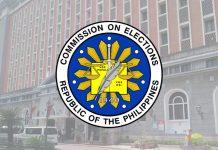THANK you for making tax reform a top priority of your socio-economic agenda!
As a tax advocate, I appreciate the dedication and level of commitment of the government led by your economic managers especially the Department of Finance and Bureau of Internal Revenue in making sure we make our tax system simpler, fairer and more efficient.
Unfortunately, the passage of Tax Reform for Acceleration and Inclusion (TRAIN) law, which is package one of the Comprehensive Tax Reform Program (CTRP) had an unintended consequence resulting to increase in prices of basic goods and services including public transportation.
Your decision to suspend the next phase of excise tax on fuel is very much appreciated as inflation has already become a nightmare for most of our poor Filipino families.
Thank you for giving them the peace of mind that in January 2019 there will be no additional excise tax which will be an added financial burden to them.
I write this open letter to give my unsolicited advice on what else can be done immediately to address the inefficiency and corruption in our tax system which is the very reason why I supported CTRP or the TRAIN law.
At its core, taxes must uplift the lives of our people. It should not merely shift the tax burden from one to another especially for the poorest of the poor who do not benefit from lowering of tax rates as most of them are either minimum wage or unemployed.
Needless to say, a tax reform that burdens the poor is not a genuine tax reform at all, as they are supposed to be the ultimate beneficiaries of the taxes we pay.
I acknowledge that lowering the income tax must be offset in some way, but imposing additional taxes should be a last resort, if not an option at all.
The excise tax on fuel, for instance, was said to have contributed only 0.4 percent to the soaring inflation. But what about its indirect impact? Transportation, production and delivery of raw materials, energy, and many others all require fuel.
While we cannot control the global oil prices, I urge you to temporarily lift excise tax and/or VAT until the prices stabilize. Any projected revenue losses must be recovered by modernizing our tax administration.
In fact, the government can unburden the people further by passing the tax amnesty program. This is a necessary step in ensuring that all taxpayers will be able to start fresh under the new tax regime.
Inevitably, proper implementation of the tax reform necessitates a better tax administration which, sadly, is currently lacking. By improving the tax administration, we can encourage or ensure more citizens to pay the right taxes.
A tax policy reform not supported by tax administration reform is pointless.
We need to broaden our taxpayer base, simplify further and automate tax compliance and lower tax rates to increase voluntary compliance.
Significantly less than half the working population are registered taxpayers. Based on the 2017 Annual Report of the BIR, there are only 19.26 million registered individual taxpayers. On the other hand, the Philippine Statistics Authority records an over 70 million working population as of January 2018.
There are roughly 50 million citizens which can be encouraged to register with the Bureau of Internal Revenue (BIR). Through them and further streamlining tax compliance, the BIR can improve its revenue collections without imposing higher or additional taxes.
Unfortunately, the BIR remains understaffed and underfunded. As of 2018, they have less than half of their plantilla positions filled up. They only have 10,044 employees out of the 21,644 authorized positions.
BIR Commissioner Caesar Dulay claims that the salary grades offered to revenue officers are currently unappealing. This leads to the flawed implementation of one of the revenue collection agency’s most crucial programs, the BIR Audit.
According to BIR’s 2017 Annual Report, deficiency taxes amounted only to 2.42% (2.24% from Preliminary/Final Assessments and 0.18% from Delinquent Accounts) of the total collection.
The BIR does not have the manpower to audit all the registered taxpayers. It should be more targeted and risk-based in nature. Under the current system, the same businesses are audited over and over again.
For instance, micro enterprises could be excluded from the BIR Audit. Auditing them would yield minimal collections in deficiency taxes anyway. For other industries, its duration should be more limited to discourage harassment.
Improving the ease of paying taxes can also encourage more taxpayers to comply. This can easily be done by modernizing the already outdated system of the BIR. Currently, there are still several processes which are done manually by default when it can already be done electronically.
Bookkeeping, for example, has an option for an electronic method but it involves significantly more requirements. The same goes for electronic methods of filing and paying taxes. The government should take steps to simplify these processes while allowing third party software/systems provider to provide more options for taxpayers to comply using their chosen accounting/tax software and even mobile applications.
Imposing new and additional taxes is not the only means of creating a sustainable tax reform. There are other countries with both lower tax rates and a higher tax effort ratio than the Philippines.
In the pursuit of a genuine tax reform, we must stop looking at the citizens as mere sources of revenue. The tax reform should always be tied to the ideal of relieving the burden on taxpayers.
For the longest time, we are paying first world taxes, and getting third world services and benefits.
As our President, please make our taxes work to change the lives of our people for the better. Rest assured of my continuous support and unsolicited advices to push a genuine tax reform in our country where the rich and those who earn more will pay more taxes, while the poorest of the poor get all the help from our government./PN







